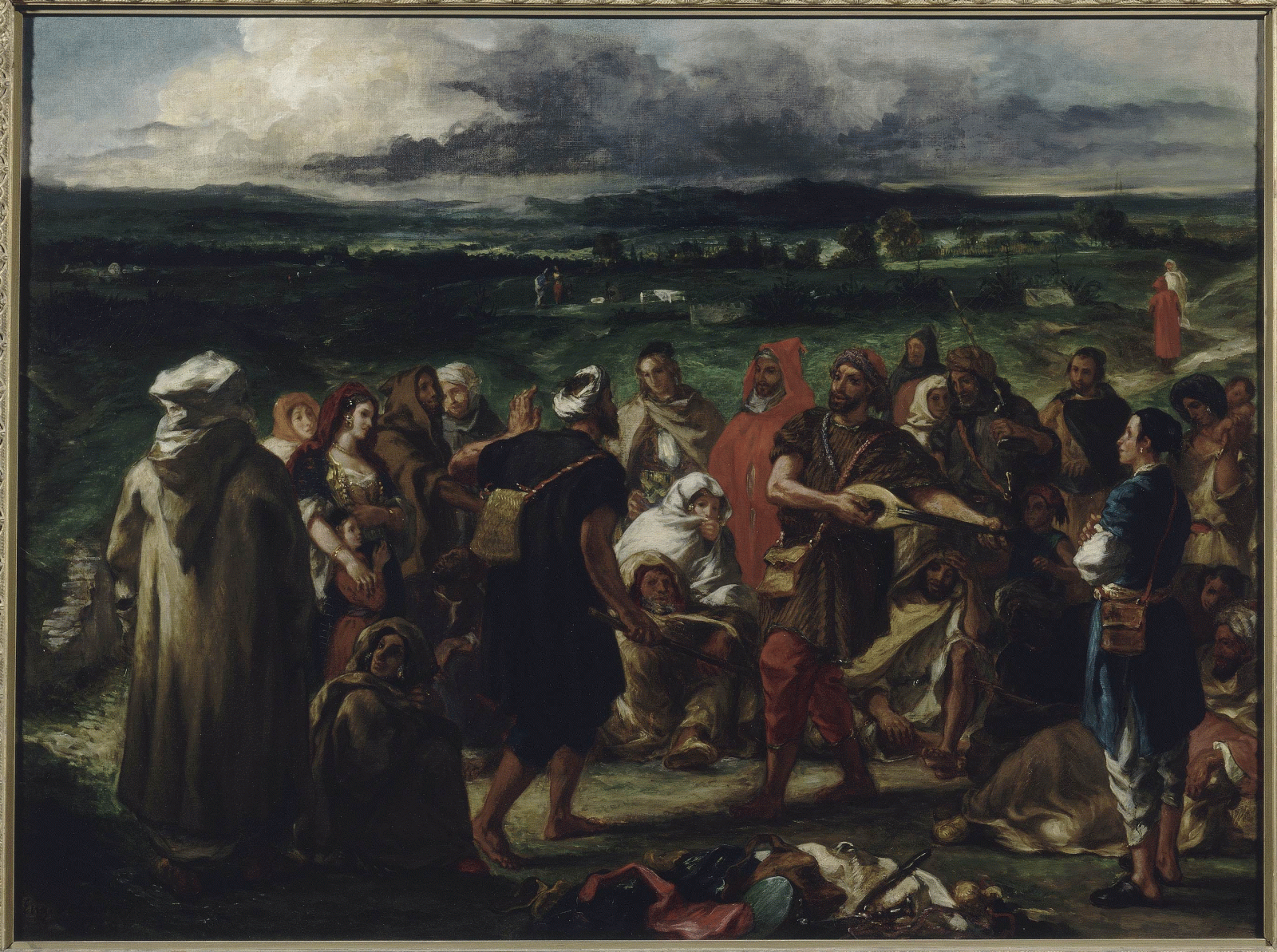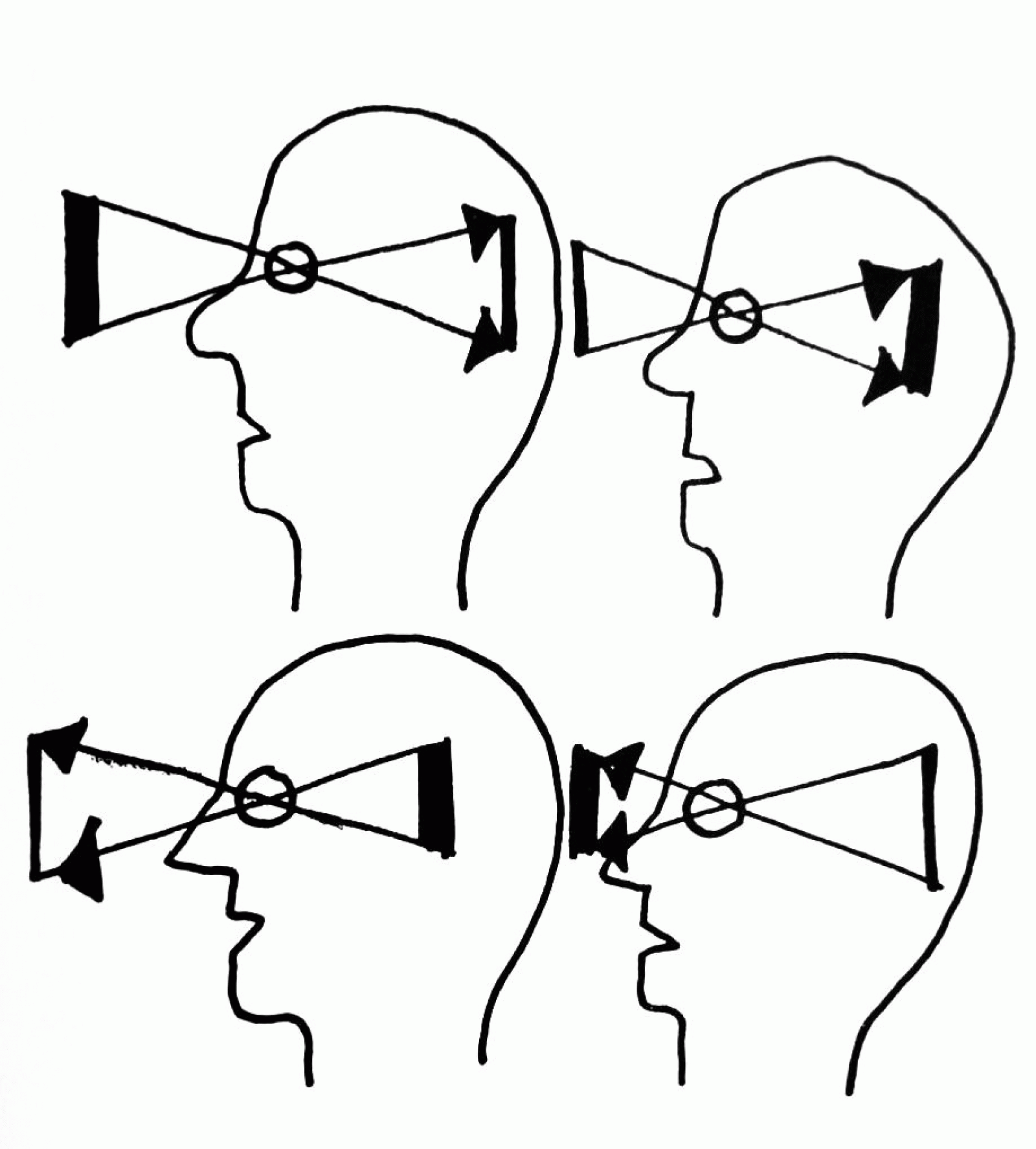Vortrag
Ralph Ubl: Orientalism and Improvisation. Delacroix's parade

«Comédiens ou bouffons arabes» sets itself apart from all the other large- and medium-format works in which Delacroix treated his 1832 journey to Morocco in that its primary subject is an artistic activity. This leads one to assume that the painter related the Moroccan performers' show to current artistic questions. In my talk, I will take up this assumption and develop three theses: first, that in this scene Delacroix studies the social power of improvisation in Morocco; second, that Delacroix considered Moroccan improvisation as a primitive (counter) model for his own poetics of autonomous and self-reflective improvisation; and third, that his appropriation and also distanced engagement with the performance in Morocco is to be understood with regard to the colonial censorship of Algerian improvisational theater in the 1840s.
Ralph Ubl is professor of modern art history at the University of Basel and director of eikones, the center of the theory and history of the image. His recent publications include Formbildung und Formbegriff. Das Formdenken der Moderne, co-edited with Markus Klammer, Malika Maskarinec und Rahel Villinger (Paderborn, Wilhelm Fink Verlag 2019) and Michael Frieds »Shape as Form« und die Kritik der Form von 1800 bis zur Gegenwart, co-edited with Rahel Villinger (Paderborn, Wilhelm Fink Verlag 2019).
The lecture will take place online via Zoom. The registration is free, but mandatory. Please register at the following address:
https://zoom.us/meeting/register/tJwld-qgrjMvHtCcDUU-2izoREmipC8fBx-Y
This talk is part of the Lecture Series Theoria. From Perception to Art Historical Methods
(organised by Hannah Baader and Hana Gründler)
The lecture and seminar series "Theoria. From Perception to Art Historical Methods" is dedicated to a critical analysis of contemporary theoretical perspectives in art history and a reframing of the concept of theoria itself. In its original sense, the Latin word theoria and its Greek etymon θεωρία meant observation or even contemplation of an object or an event, and was thus inextricably linked to the very act of seeing. However, in modern formations of theory the importance of visual perception is often neglected, and opposed to the exortion of principles of abstraction and rationality.
This series invites reflection on the historical and semantic horizons of theoria as well as the methodological-systematic implications of theory in the field of visual studies. The questions that arise are manifold: How should the relation between seeing and theory be (re-)defined? What is the position of the spectator within and without those spaces that open up for theoretical reflection? How strict is the juxtaposition of theoria and praxis? And last but not least, is it not time to critically reflect upon the practice of theory itself in art history and beyond?
Single case studies as well as general methodological considerations from all fields of art history and neighbouring disciplines will help to foster a differentiated understanding of an old, yet timely topic.

MUNDUNCULUM: Ein tentatives Logico-Poeticum, dargestellt wie Plan und Programm oder Traum zu einem provisorischen Mythebarium für Visionspflanzen. BAND 1: Das rot’sche VIDEUM. Dumont Schauberg: Köln 1967, S. 203.
Hinweis
Diese Veranstaltung wird durch Fotografien und/oder Videoaufnahmen dokumentiert. Falls es nicht Ihre Zustimmung findet, dass das Kunsthistorische Institut in Florenz Aufnahmen, auf denen Sie erkennbar abgebildet sein könnten, für die Veranstaltungsdokumentation und Öffentlichkeitsarbeit (z.B. Social Media) verwendet, bitten wir um eine entsprechende Rückmeldung.


